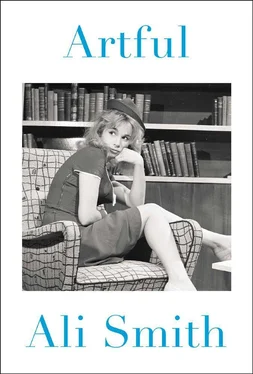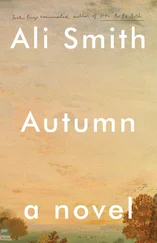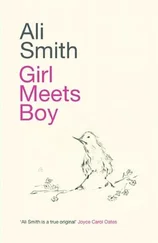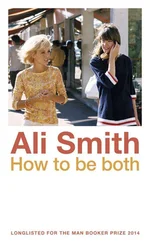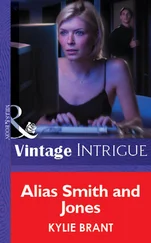Michelangelo lived to be nearly three times as old as Mansfield, who shared his knowledge, like Damien Hirst does, like all artists do, that regardless of how precious the stones stuck all over it are, it’s a skull — and regardless of whether it’s the 1520s in the sun in Florence or the first decade of the twenty-first century in an aesthetically reproduced Scandinavian sunrise in a London art gallery, you must remember this, as time goes by, the fundamental things apply.
2: I’m in Pieces, Bits and Pieces: the fragmentation imagination (could call it the imfragmentation? the imfragination??? NB)
‘But it is only in ashes that a story endures, / Nothing persists except extinguished things,’ Montale says (or Edwin Morgan does, translating Montale). The earliest story we have, The Epic of Gilgamesh — and we only actually have pieces of it, we’re still finding and rearranging the pieces, written on ancient baked tablets, of this proof, this broken indication of the countless literatures of the past lost to us — is about what happens when a man’s friend goes into the House of Dust, ‘the house which none who enters ever leaves.’
Enkidu, Gilgamesh’s friend, grows ill and dies. ‘How can I keep silent? How can I stay quiet? / My friend, whom I loved, has turned to clay.’ Gilgamesh mourns him, in one of the most beautiful poetic elegies that yet exist, then immediately goes on a journey to find eternal life so the same thing won’t happen to him. When he fails to snare the source of living forever he returns home to the city of which he’s king and builds a statue instead to commemorate his dead friend. He accepts his own mortality. He puts aside his tyrannous ways; reforms his morality. He remakes his friend, in clay.
‘Decay is the beginning of all birth,’ as Paracelsus has it, ‘the midwife of very great things.’ This is Czesław Miłosz on decay, from his poem called No More (translated by Anthony Miłosz):
if I could find for their miserable bones
In a graveyard whose gates are licked by greasy water
A word more enduring than their last-used comb
That in the rot under tombstones, alone, awaits the light,
Then I wouldn’t doubt. Out of reluctant matter
What can be gathered? Nothing, beauty at best.
And so, cherry blossoms must suffice for us
And chrysanthemums and the full moon.
Miłosz conjures not just the real mutable things which will have to ‘suffice for us,’ and not just the poet’s act of finding the images for these things, but the poet’s vital quest for a word that will ‘last,’ an art which will last longer than the things we quotidianly use in our lives without thinking for a minute they’ll survive us, or that they might be all that survives of us — the word which won’t just record our brevity, but will stand as a paradox, beyond transience, for our essential transience.
A late poem by Edwin Morgan, The Sandal, does the same thing but this time for a poet, and almost as a revelation that art itself is a broken thing if it’s anything, and that the act of remaking, or imagining, or imaginative involvement, is what makes the difference:
What is this picture but a fragment?
Is it linen — papyrus — who can say?
All those stains and fents and stretched bits, but
she was a character, even a beauty, you can see that
from the set of her head and the rakish snood
her tight black curls are fighting to escape from.
She is wearing a very very pale violet tunic
which is partly transparent, partly translucent,
partly not there. It has slipped off one shoulder
but the shoulder is gone. The other arm has faded
to a scarcely perceptible gesture. One sandal
gleams. All the rest is conjecture.
Her name is a letter or two: Sa, Saf—
O she is all fragments. There she is though!
As Matthew Reynolds says in The Poetry of Translation, about Sappho and the fragments that are all we have of her love poetry, ‘the longing represented in the fragments was doubled by a longing felt by readers for the fragments themselves to be made whole.’ It’s the act of making it up, from the combination of what we’ve got and what we haven’t, that makes the human, makes the art, makes this transformation possible, like it’s the eye engaged in the creative act, in union with a kind of not seeing, in Rilke’s poem Archaic Torso of Apollo (translated here by Stephen Mitchell):
We cannot know his legendary head
with eyes like ripening fruit. And yet his torso
is still suffused with brilliance from inside,
like a lamp, in which his gaze, now turned to low,
gleams in all its power. Otherwise
the curved breast could not dazzle you so, nor could
a smile run through the placid hips and thighs
to that dark center where procreation flared.
Otherwise this stone would seem defaced
beneath the translucent cascade of the shoulders
and would not glisten like a wild beast’s fur:
would not, from all the borders of itself,
burst like a star: for here there is no place
that does not see you. You must change your life.
The first thing the imagining eye does is supply what’s not there, giving the statue not just a head but a legendary one; its missing eyes are both seen (‘like ripening fruit’) and at the same time never seeable (‘we cannot know’). It’s the fact that Apollo does not have ‘his legendary head’ that gives the torso, all there is left, the explicit, newly muted ‘gaze,’ that gives the smile to the hips and thighs, that heals the defacement. In its own literal face-off, in a magical shifting of the position of observer and observed, it means that the ‘you’ of the poem becomes not just the seen thing instead of the art, but something seen so utterly, so wholly, that ‘there is no place that does not see you.’ It’s this being seen (met in the act of looking) — the exchange that happens when art and human meet — that results in the pure urgency for transformation: ‘you must change your life.’
Which is all very well if your missing head’s a godhead. Wisława Szymborska’s observer in her poem Greek Statue (translated by Clare Cavanagh and Stanisław Bara´nczak) is much more sanguine. The dismembered statue, the speaker says, with all the bits, the arms, legs, genitals, head, knocked off it by time, is bloody lucky, never having been alive in the first place: ‘When someone living dies that way / blood flows at every blow.’ To Szymborska though, still, the remains act as a revelation of ‘all the grace and gravity / of what was lost.’
Time’s an old song. (Three wheels on my wagon / and I’m still rolling along / The Cherokees / are chasing me / arrows fly / right on by / but I’m singing a happy song…Then: Two wheels on my wagon / But I’m still rolling along…Then: One wheel on my wagon…Then: No wheels on my wagon…) All songs involve time, because music depends on time. Time’s a song against the clock, sometimes a happy one, sometimes not, like The Unquiet Grave, a Child Ballad from the early fifteenth century where a lover mourns on the grave of a lost love ‘for a twelvemonth and a day’ only to be told by the ghost to go away, stop bothering the dead, get a life before it’s too late. ‘You crave one kiss of my clay-cold lips; / But my breath smells earthy strong; / If you have one kiss of my clay-cold lips, / Your time will not be long.’
3: If They Asked Me, I Could Write a Book
‘In a novel there is always a clock,’ as EM Forster says in Aspects of the Novel. Forster called time (and narrative’s interwoven union with it) the ‘interminable tapeworm.’ He thought the novelist ought to — had to — grasp the ‘thread’ of it: thread is a great word here, calling to mind yet more worms, and the three fates with their scissors ready to cut us off at the end of our stamina when the life story’s all sewn up. Nowadays thread has an altogether new virtual meaning, has become a column of recorded information that has the appearance of instantaneity and is probably really out of date. And when I think of Forster’s tapeworm I can’t help thinking of the Nicola Barker short story Symbiosis: Class Cestoda, where a girl takes her boyfriend, Sean, out to a restaurant to tell him she’s fallen in love with her own tapeworm and is leaving him and settling down with the worm instead.
Читать дальше
